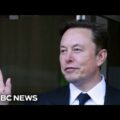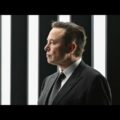Introduction
Elon Musk recently faced a setback in Delaware when a court ruling voided his $55.8 billion Tesla pay package. While this decision has significant implications for Musk's personal gain, it also raises concerns about his ambitions for Tesla and SpaceX.
The Delaware Court Ruling
A Delaware judge invalidated Musk's compensation package, which was granted by the Tesla board in 2018. The lawsuit, led by investor Richard Tornetta, nullified the payout that contributed to Musk becoming the world's richest person. The court ruled that the approval process for Musk's compensation plan was flawed, as Tesla's board lacked truly independent directors at the time. Musk's pay was structured as stock option awards, which he has already met the performance goals for but can only sell after a certain period.
Implications for Musk's Ambitions
The court's decision not only affects Musk's personal gain but also poses a risk to his ambitions with Tesla and SpaceX. If the appeal fails, Musk would lose options on approximately 303 million Tesla shares, reducing his stake in the company to just 13%. Musk argued that he needs a 25% ownership stake to have voting control over key areas of innovation, such as AI and robotics. Without this control, Musk may shift his focus away from Tesla and explore AI and robotics ventures elsewhere.
Impact on Tesla and SpaceX
The potential loss of Musk's control and focus could have consequences for Tesla. Currently valued at $600 billion, Tesla has experienced significant growth since Musk received his pay plan in 2018. Musk had stated during the trial that his pay package would help finance his ambitions for SpaceX and the colonization of Mars. However, if a substantial portion of the financing plan goes missing, it could hinder Musk's ability to fund these ventures. Additionally, Musk's legal battle and the court ruling may trigger a reconsideration of where Corporate America chooses to do business.
Delaware as a Corporate Attraction
Delaware has long been a favored state for corporations to be domiciled due to its favorable tax laws and privacy regulations. With over one million companies incorporated there, Delaware is home to as many businesses as it is people. The state's tax advantages, including the "Delaware Loophole," which allows companies to avoid corporate income tax if they don't operate in the state, have made it an attractive choice for corporations. However, Musk's legal battle highlights that even in Delaware, powerful figures like him can face pushback.
Considerations for Corporate America
Musk's response to the court ruling suggests that he may encourage companies not to incorporate in Delaware. Instead, he recommended Nevada or Texas, where corporate interests may find a more favorable environment. Texas, in particular, has shown its willingness to create business courts that cater to corporate needs. If Texas offers a friendlier regime for corporations, Musk might choose to incorporate Tesla in the state.
Conclusion
The court ruling in Delaware not only affects Elon Musk's personal gain but also raises concerns about his ambitions for Tesla and SpaceX. It highlights the potential consequences of losing control and focus on these ventures. Additionally, the ruling may prompt a reevaluation of Delaware as a preferred state for corporate incorporation, with other states like Texas potentially emerging as more attractive options.
—————————————————————————————————————————————
By: hchowdhury@insider.com (Hasan Chowdhury)
Title: Elon Musk’s Battle with Delaware and Its Implications Beyond a $55 Billion Pay Package
Sourced From: www.businessinsider.com/elon-musk-delaware-battle-goes-beyond-55-billion-pay-package-2024-1
Published Date: Wed, 31 Jan 2024 14:26:19 +0000





Leave a Reply